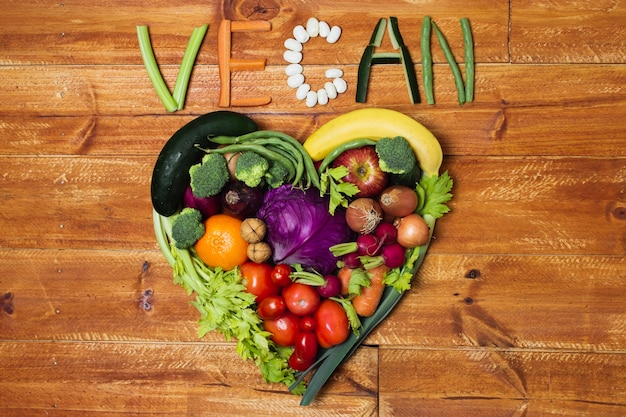
Did you try Veganuary this year? Are you thinking about going vegan or adopting a more plant-based lifestyle? Dr. Gemma Newman has some great tips for making the transition.
With so many diets out there—low fat, high fat, low carb, high carb, vegan, paleo, keto—it’s easy to get confused. How do you know which one is actually effective, and which one is the best choice?
Veganuary is gaining traction, with a significant increase in participants each year. In 2018, 170,000 people signed up, marking an 183% rise from the previous year. In 2019, over 250,000 joined the challenge, and the numbers have likely increased since.
But is a vegan diet truly healthy? How does it compare to other popular diets that claim to be good for our health? When it comes to nutrition, it can be confusing with all the mixed messages from the media, food companies, and even some health professionals.
However, it’s hard to argue against the benefits of eating plenty of fruits and vegetables, choosing whole, unprocessed foods, and avoiding processed meats, sugary sweets, and drinks, as well as white flour and bread. While some people might try to eat everything in moderation, it’s not always the healthiest approach. Just like we wouldn’t recommend smoking in moderation, the same goes for sugary drinks and processed meats, which the World Health Organization (WHO) classifies as a class 1 carcinogen—a known cancer-causing factor.
Dr. David Katz brought together leading nutrition experts from around the world as part of the ‘True Health Initiative’ to find a common understanding. They agreed that a diet rich in vegetables, fruits, beans, nuts, seeds, whole grains, and water is key to good health. If you compare paleo and whole food plant-based diets, they share more similarities with each other than with an average Western diet.
Research shows that a whole food plant-based diet can reverse coronary artery blockages in weeks, as proven by The Lifestyle Heart Trial published in The Lancet in 1990 and more recently in the Mount Abu Heart Trial. With heart disease still being a major killer, it seems wise to adopt this diet until further evidence suggests otherwise.
Switching to a plant-based diet can seem daunting for those accustomed to a Western diet. If you’ve stuck with Veganuary, congratulations! For those looking to start a plant-based diet, here are some ways to ease into it.
Consider some cookbooks to help make the transition smoother. “So Vegan in 5” by Roxy Pope and Ben Pook offers simple recipes with just five ingredients. “BOSH!” by Henry Firth & Ian Theasby provides over 80 plant-based recipes and has a strong online presence with millions of recipe views.
Another tip is to tweak your favorite meals. If you love chicken curry, try switching to a chickpea curry. Swap beef Bolognese for lentil Bolognese or turn a Mexican chili into a three-bean chili. Enjoying the vegan versions of your dishes means you’re on the right track.
Start small by changing your breakfast to a plant-based one a couple of times a week, including switching out the milk in your morning tea or coffee. Progressively apply this to your lunches and dinners until you’re enjoying a variety of new meal ideas. If you switch to a fully whole food plant-based diet, you might notice more benefits within two to three weeks, though your gut might need time to adjust.
The American and British Dietetic Associations agree that well-planned plant-based diets are suitable for all ages and can help prevent major diseases like heart disease and cancer. Such diets may also lower the risk of chronic illnesses, allergies, and infections in childhood, promoting better health now and in the future. The British Dietetic Association has even started the Blue Dot Campaign to emphasize plant-based diet advice for everyone.
Today, the Western diet lacks essential nutrients due to soil degradation and heavy pesticide use. Typically, a Western diet falls short on nutrients like magnesium, folate, and fiber and is linked to obesity and chronic diseases that benefit from a plant-based diet. A well-planned plant-based approach, specifically the ‘nutritarian’ method, focuses on nutrient-dense foods rich in vitamins, minerals, fiber, and antioxidants.
However, a fully plant-based diet requires some supplements since you won’t get them easily from food alone. Vitamin B12 is essential, and I’d recommend at least 10mcg daily or 2000mcg weekly, as it’s crucial for breaking down homocysteine—linked to heart issues. You can get B12 from fortified foods or opt for a supplement.
Even those who eat meat might be B12 deficient after the age of 50 due to absorption issues. Factors like certain medications or health conditions can also affect B12 absorption, so checking levels and taking supplements is wise, especially for diabetics.
Vitamin D is another critical supplement since most of us don’t get enough. A general rule is if your shadow is shorter than your body, you’re getting enough sunshine. If not, aim for at least 1000iu of vitamin D daily, or 2000iu if you’re prone to deficiencies.
EPA/DHA supplements, derived from algae, are great for heart health without consuming fish or fish oils, thus avoiding heavy metals and toxins common in these foods.
Flaxseeds are another superfood; just one or two tablespoons daily can improve heart health. You can add them to oatmeal, salads, or even use them in baking.
Dr. Gemma Newman has been in medicine for 15 years and serves as the Senior Partner at a family medical practice, where she has practiced for the last decade. She studied at the University of Wales College of Medicine and has worked in various specialties, honing her expertise in plant-based nutrition.




